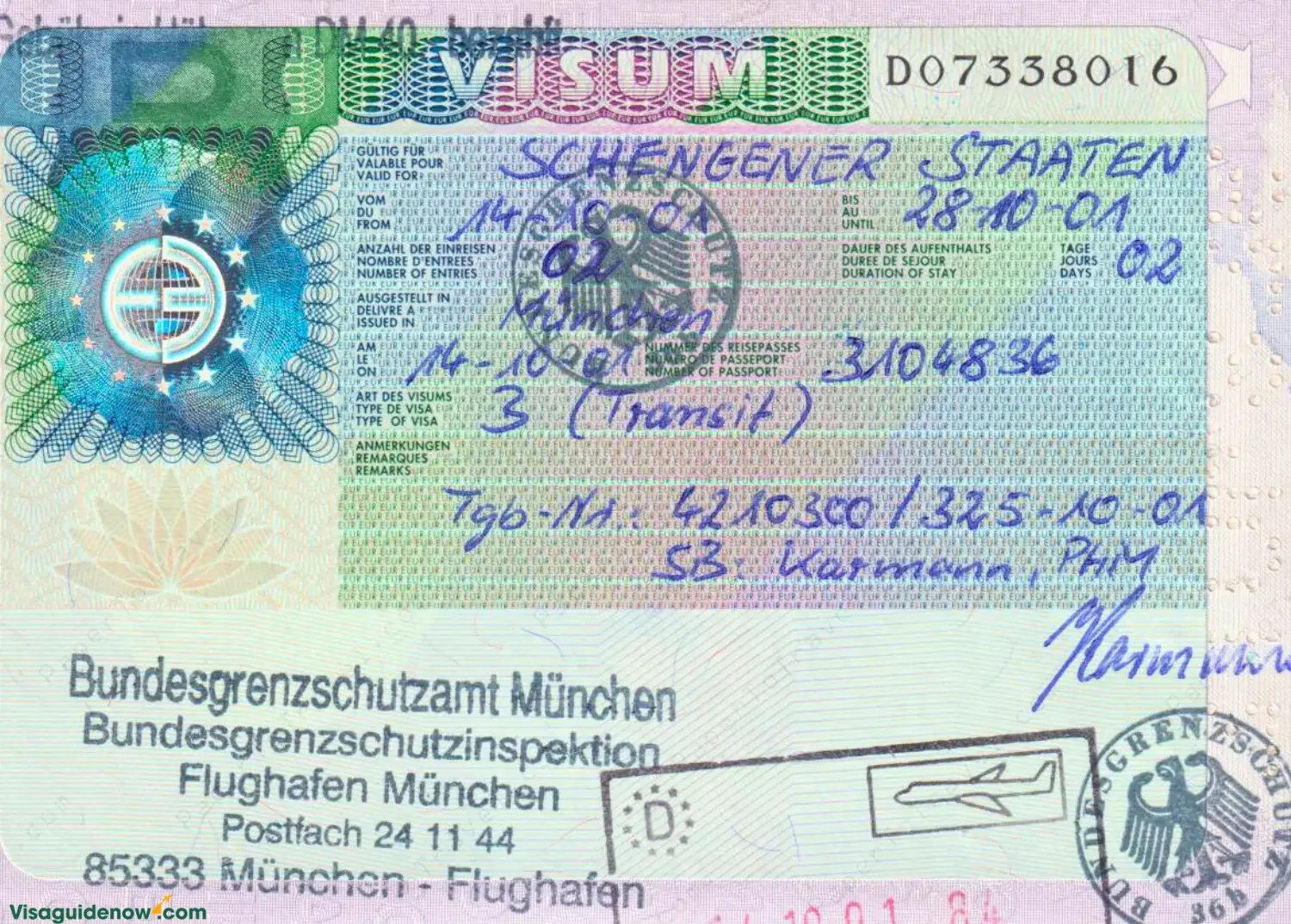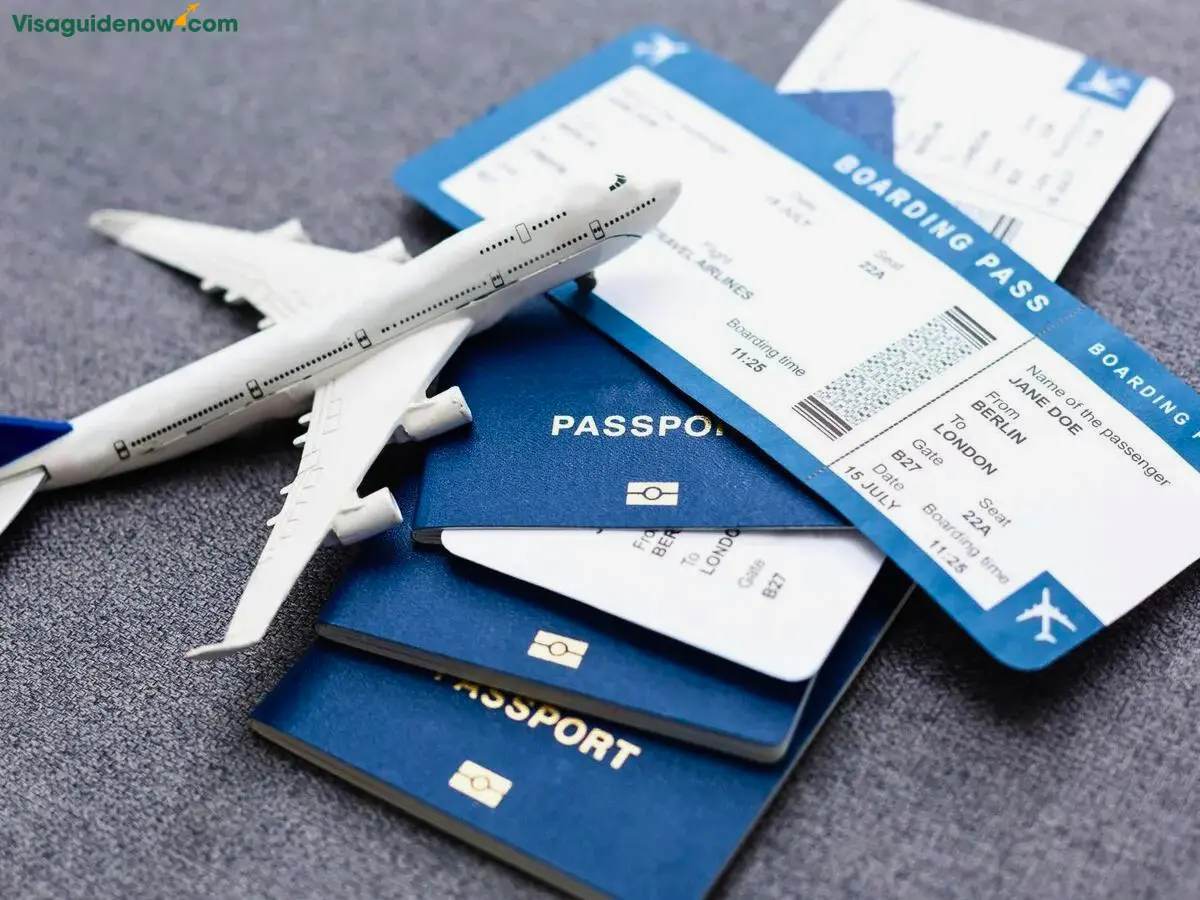Transit Visa – Guidelines and Requirements
Author:Tran Van Chung | 20/02/24
What is a transit visa?
A transit visa is an indispensable document for many international journeys, especially when you need to stop in a country en route to your final destination. Even for a short duration, understanding this visa will make your trip smoother. This article provides all the information you need about transit visa, from requirements to the application process. Let’s dive in!
A layover permit is necessary for those who need to pass through another country on their way to their final destination. It’s designed for cases where you don’t plan to stay long in that country, usually only a few hours to a few days. For example, if you’re flying from India to the USA with a stop in the Schengen area, you might need a Schengen layover permit to continue your journey.
This visa is typically temporary and not required for everyone, depending on the specific regulations of the country you’re transiting through. That’s why checking with the embassy or consulate before planning your trip is crucial.
Transit visa by country
When you need to pass through another country on your way to the final destination, a transit visa becomes more necessary than ever. Accordingly, the list of countries allowing for transit visa applications includes:
Transit visa fees by country
Transit visa fees can vary depending on the country you’re planning to transit through. Here are some details on transit visa fees you may encounter:

- Australia: Free. Australia offers a free option for transit visa, easing the financial burden for passengers transiting through Australia.
- Canada: Free. Similarly, Canada does not charge fees for transit visa, making the transit process through Canada convenient and cost-free.
- Japan: JPY 700. A relatively low fee, allowing passengers to transit through Japan at a reasonable cost.
- New Zealand: NZD 12. New Zealand requires a small fee for a transit visa, making the process straightforward and affordable.
- Schengen: EUR 80. This visa is valid for all Schengen Area countries, providing a convenient solution for passengers transiting through multiple European countries.
- Singapore: SGD 40. Singapore charges a moderate fee for layover permit, supporting passengers transiting through Changi International Airport.
- United Kingdom: GBP 35-64. Depending on the type of visa and length of stay, layover permit fees in the United Kingdom vary.
- United States: USD 160. The United States has one of the highest fees for layover permit but also offers numerous amenities and services for transit passengers.
Transit visa documents required
When you need to transit through another country on your journey, understanding the requirements for a layover permit is important. Here’s what you need to prepare when applying for a layover permit:
- Airport transit visa application form: Ensure it’s fully and accurately completed.
- Valid passport for at least six months: And has at least one blank page.
- Passport-sized photo: Taken according to the general visa photo requirements.
- Travel insurance: To ensure your trip’s safety.
- Airline tickets to the destination country: Proving your itinerary.
- Visa for the destination country (if required): For some countries that require a visa before entry.
- Proof of financial means: Demonstrating your ability to pay for the trip.
How to get a transit visa?
The process for obtaining a transit visa includes the following steps:
- Step#1. Check if you need an airport visa: Contact the airline and the embassy or consulate to determine.
- Step#2. Prepare your documents: Gather all necessary documents as per the list of requirements.
- Step#3. Find a visa application center: This could be an embassy, consulate, or an official visa application center.
- Step#4. Submit your application and attend an interview: Complete the visa application and attend an interview if required. Make sure to pay the visa fee as requested.
What is the transit zone?
The transit zone is an essential part of international airports, where passengers can stay without clearing immigration while waiting for their next flight. This area is designed to support transit passengers, allowing them to rest, shop, or even enjoy entertainment services without leaving the airport.
Using the transit zone saves time and minimizes inconvenience when you only need to stop for a short period before continuing your journey.
Do I need a transit visa if I leave the transit zone?
If you plan to leave the transit area at the airport during your journey, having a layover permit is necessary. This is especially important for citizens from certain countries, like Iran and Syria, as they will require a layover permit regardless of whether they leave the transit area or not.

Difference between transit and transfer passenger
In aviation, there’s a clear distinction between transit and transfer passengers. Transit passengers continue their journey on the same aircraft or with the same booking code, while transfer passengers typically need to switch to a different aircraft or airline and go through check-in again. This means that for transfer passengers, checking visa requirements is an essential step to ensure no obstacles arise during the flight transition.
Difference between direct, connecting, and non-stop flights
Each type of flight, from direct, connecting, to non-stop, has its unique characteristics.
- Direct flights may stop at one or more points to board new passengers without changing the flight number.
- Connecting flights require passengers to switch to a different flight at a transit point, often involving luggage re-check and may require a layover permit.
- Non-stop flights travel from point A to point B without stopping at any intermediate points, offering maximum convenience and time-saving for passengers.
Can I use my transit visa more than once?
Transit visa is typically valid for a single use only. This means that once you have used this visa to transit through a country and continue your journey to the final destination, the visa will no longer be valid. Therefore, if you plan to transit again through that country during your trip, you will need to apply for a new layover permit.
Additionally, if your stay in the transit country exceeds the duration allowed by the layover permit, applying for a tourist visa or another appropriate type of visa is mandatory to ensure you comply with the regulations of that country.







